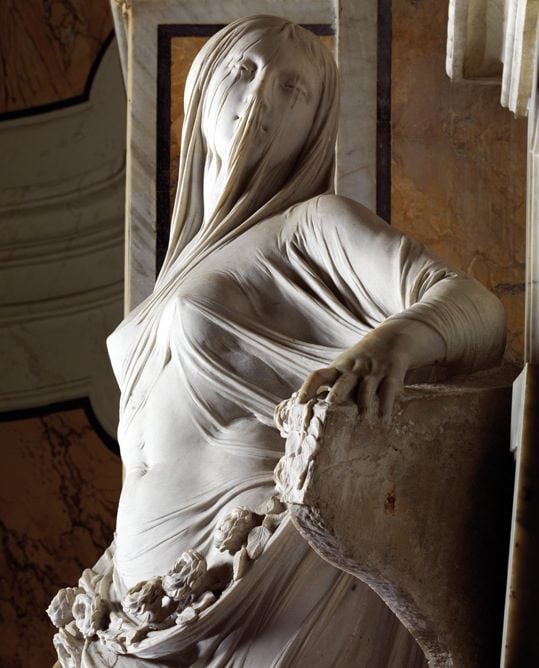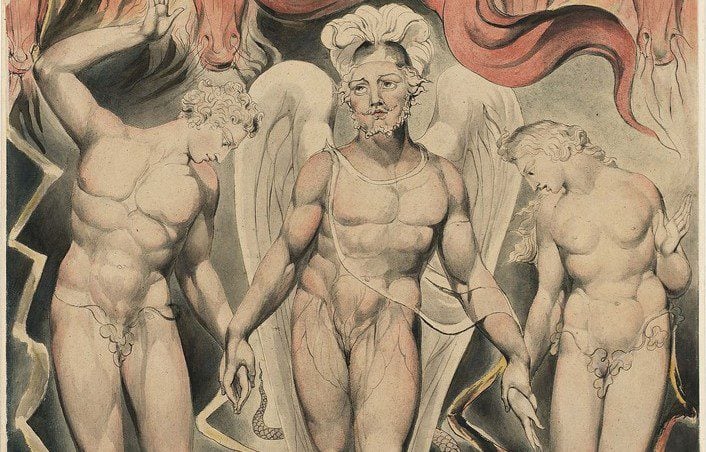
You, dear reader, are the only person in existence who knows you are a subject, an I, an unique consciousness, and an individual perspective in the Cosmos. I do not know you are a subject, for to know that would be to experience your subjectivity, that is, to be you.
Indeed, forgive me, how rarely I can even muster up the faith necessary to believe you are a subject! When I see you in the crowd, the car, the mall, the hall — I see you as an object amongst many, not as a unique person. When I see you on the Internet, you are not a subject with individual cares, inward concerns, joys and desperations — you are an object, a picture and a name. I — and this comes from a personal callousness I would shudder to apply to you — am even unmoved by the gorgeous, soundtracked videos that pan over emaciated humans beings and beg food for the starving, for if it takes faith to move mountains, it takes faith to make an image into a human subject, and I am a man of little, pitiful faith.
Because I can never be you, I can never know that you are having the same deep, personal experience of life I’m having.
Now into this immense difficulty, between the seemingly infinite gap between the self and the other, modesty is born. The Church — and we might as well listen to her, as no one else seems to know what the hell they’re talking about — holds that modesty is “born with the awakening consciousness of being a subject.” (CCC 2524) Your modesty, insofar as it is born out of a consciousness of being the only knowable I in a world of others, convinces me — who cannot, through knowledge alone, be convinced of your subjectivity — that you are an I, a person, and a human subject. Modesty “preserves the mystery of persons” (CCC 2522), as “an intuition of the spiritual dignity proper to man.” (CCC 2524) It “protects the intimate center of the person,” namely, his subjectivity. How?
By telling the truth. The loneliest man on the loneliest mountain has a duty to practice modesty, because modesty is truthfulness. As Aquinas says, “in so far as outward movements are signs of our inward disposition, their moderation belongs to the virtue of truthfulness whereby a man, by word and deed, shows himself to be such as he is inwardly.” (Aquinas, Question 168, Article 1) By modesty, our outward movement, expression and presentation are made signs of our inward disposition. We express our inner subjectivity, and thus invite our fellow man to make a leap of faith and consider us as subjects.
But modesty is not merely concerned with getting others to recognize our subjectivity. “It guides how one looks at others and behaves towards them in conformity with the dignity of persons and their solidarity.” (CCC 2521) By outwardly being our true selves, we recognize the true self expressed in the body, word and deed of the other, who becomes, under the modest gaze, our brother and fellow subject. I takes a subject to know a subject.
Modesty makes peace between the body and the soul. As the Eucharist is a spiritual reality under the appearance of bread, making truly present the God which it signifies, so modesty reveals the body to be a sacrament, a sign, movement, appearance and presentation which makes present that which it signifies — the particular human person; the subject.
Were I to join a Gay Pride Parade, donning a pair of assless chaps to offend the bourgeoisie, my primary offense against modesty would not be my leading others astray, or simply “showing too much.” My sin would be a lack of authenticity, my willingness to present myself as a caricature, my willingness to be objectified into a Hollywood-driven, stereotypical notion of “homosexual” that replaces my true subjectivity, the very same immodesty that leads to this…
…which is precisely the same immodesty present in “the voyeuristic explorations of the human body in certain advertisements,” (CCC 2522) which display the body as an object for observing.
True revelation of our subjectivity via the presentation and action of the body, this definition coalesces the many meanings we give to “modesty” into a coherent whole. We tell the man who is bragging to “be modest,” even if he isn’t showing an inch of flesh, because modesty is essentially an honesty in the presentation of self, and thus the man who can only present himself as a bumbling conglomerate of degrees and good decisions may be acting more the whore than the pornstar. Modesty is synonymous with unpretentiousness because pretentiousness is just that — a pretense, and modesty, which is truthfulness, does not suffer its opposite.
Our will to be an object is immense. How much easier it is to be stereotype of religion or ideology, how much simpler to be the sum of our achievements or attractive features, and how much nicer the world would be if we could all be content with our careers, styles, sexualities, and living-room decors being “who-we-are.” By placing our very selves in our objective qualities, we live as objects, and this is immodesty, a disintegration between who-we-are — subjects — and how we present ourselves in word and deed — as objects. It is an essential dishonesty. Few, maybe one in ten thousand, and I far from them, live as subjects. Few live modestly, portraying themselves outwardly as the inward selves that they are.
This is the radical message of the Catholic Church, that modesty allows us to be outwardly the selves that we are, and in being ourselves, to bridge the terrifying gap between man and fellow man, self and other.
And Modesty Sets Fire.












